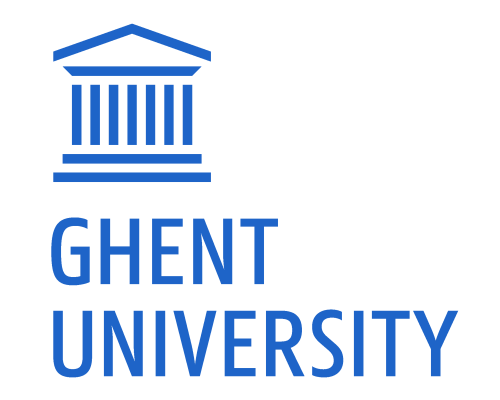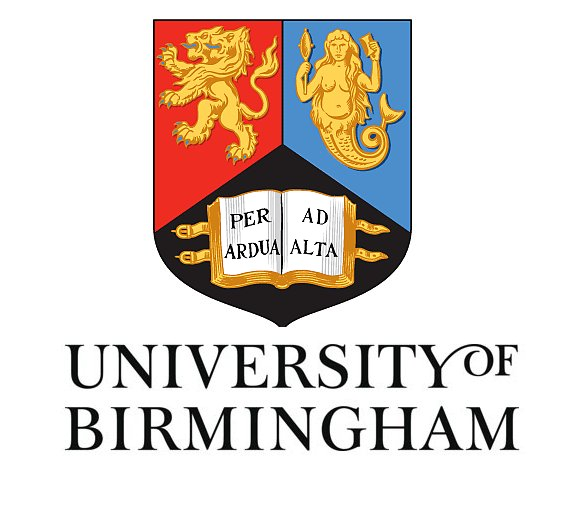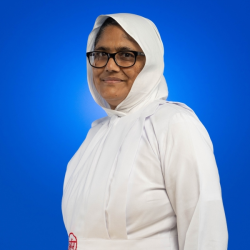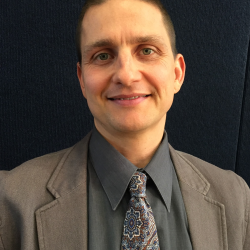
Adhyātma Movements: Śrīmad Rājacandra and Kānjī Svāmī
Oct 02, 2023
8:00 - 9:30 AM PST
Presiding: Heleen De Jonckheere, SOAS
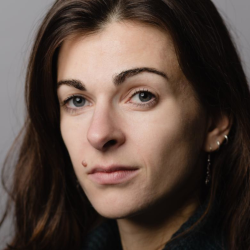
Heleen De Jonckheere is a scholar of Jain literature and Jain history. Her current research focuses on the conceptualisation and practice of translation and adaptation in the Jain context and in South Asia in general, and on the religious implications of translation. Her further interests include Jain narrative literature, Jain manuscript culture, religious plurality in historical India as well as the interactions of popular forms of religiosity with more established forms of religion. She received a PhD from Ghent University in December 2020 and continued her work at the University of Chicago and the University of Toronto. At present, Heleen is appointed as lecturer in South Asian Religions at SOAS, University of London.
Adhyātma Movements: Śrīmad Rājacandra and Kānjī Svāmī
Presenter: Corinna May Lhoir, Universität Hamburg

Corinna Lhoir, M.A., is a PhD student of South Asian Studies with focus on Classical Indology at University of Hamburg (Germany) and Ghent University (Belgium), as well as an entrepreneur with her own online learning platform with focus on studies of Yoga and Sanskrit (yogastudien.de).
She holds a B.A. in Languages and Cultures of India and Tibet with focus on classical Indology from Universität Hamburg, a M.A. in Traditions of Yoga and Meditation from SOAS, University of London and a M.A. in Oriental Languages and Cultures (India) with focus on Jainism from Ghent University in Belgium.
Her research primarily concentrates on yoga in medieval Jainism. She is currently preparing a critical edition of the Yogapradīpa, a Jain medieval text on yoga and meditation, and its vernacular commentaries.
Empowering Vernacular Identity: Exploring Śrīmad Rājchandra’s Impact on the Significance of Gujarati in Forming a Religious Community
In this presentation, we delve into the profound significance of language, specifically the vernacular Gujarati, in shaping the identity of a religious community. The focus centers on the life and teachings of Śrīmad Rājchandra, a prominent figure born during a period of transformative change, marked by challenges posed by British rule and the intensifying competition among Hindu, Muslim, and Christian influences within society. In response, Jain communities and sects embarked on endeavors to unify their members under a shared Jain belief system that could resonate universally. Language, particularly Gujarati, played a pivotal role in these efforts. Śrīmad Rājchandra's philosophical outlook, though not strictly confined to Jain tenets, remarkably contributed to these reform initiatives. His teachings appealed to seekers through a simplified approach and the emphasis on self-realization—a notion steadily gaining popularity at the time. Consequently, his message garnered increasing acclaim, fostering a growing global community of Jain followers. Throughout his lifetime, Śrīmad Rājchandra cultivated a devoted circle of adherents, and today, he is regarded as an esteemed Guru by countless Jains worldwide. Evidence of his profound influence extends to the establishment of religious centers dedicated to him across various regions, reflecting the enduring appeal of his teachings. Additionally, discernible signs of an evolving lay guru lineage underscore the broad allure and contemporary relevance of Śrīmad Rājchandra's spiritual insights beyond sectarian and religious boundaries. By exploring the dynamic interplay between language, identity formation, and religious conviction, this presentation sheds light on the vital role played by vernacular language, particularly Gujarati, in shaping the essence and unity of a religious community. We uncover how Śrīmad Rājchandra's philosophy, while transcending strict Jain definitions, provided a compelling framework for unification and self-realization, leaving an indelible impact on Jainism's globally evolving landscape.
Presenter: Corinne Smith, SOAS

Corinne is a PhD researcher in the Dept. of History, Religions & Philosophies at SOAS, University of London. During her BA and MA degrees in South Asian Religions, Corinne developed a special focus on Jainism. She is currently writing a thesis upon the life and teachings of the Digambara Jain leader, Kānjī Svāmī (1889-1980), under the academic supervision of Prof. Peter Flügel. She is collaborating with Chouette Films on a film about Kānjī Svāmī and she co-curated the 2023 exhibition 'Pure Soul: The Jaina Spiritual Traditions', held at the Brunei Gallery (SOAS), London.
Adhyātma in Gujarat: Some Comparative Remarks on Śrīmad Rājacandra and Kānjī Svāmī
Śrīmad Rājacandra (1867 – 1901) and Kānjī Svāmī (1889 – 1980) were two highly influential Gujarati Jain lay leaders whose philosophical teachings drew heavily upon the writings of Kundakunda and the Digambara ‘mystical’ tradition. This tradition forgoes much of standard Jain ritual practice and instead promotes a spiritual path centred upon gaining experiential knowledge of the soul as the key to spiritual liberation (mokṣa). Given that Kundakunda’s work is a shared major influence upon the thought of these two figures, this paper will use a comparative method to survey key similarities and differences between the salient features of their teachings on liberation.
